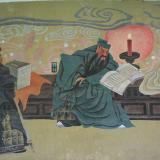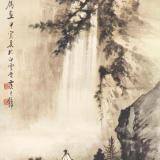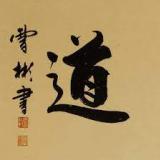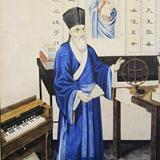Latest Episodes
Blog Posts
Comments
- 5. Going Paperless: Ancient Chinese Texts
Posted on
What were ancient Chinese philosophical texts written on? How did writing relate to orally transmitted wisdom? How were texts read and used? And what even counted as a “text” in ancient China?
- 444. The Dark Night Rises: Spanish Mysticism
Posted on
Teresa of Ávila and John of the Cross push the boundaries of individual spirituality and offer philosophically informed accounts of mystical experience.
- 4. Open Season: the Historical Context
Posted on
The historical context of classical Chinese philosophy, and how ancient Chinese historical works themselves became works of philosophy.
- 443. Marketplace of Letters: Iberian Humanism
Posted on
Fray Luis de Leon, Antonio Nebrija, Beatriz Galindo and other scholars bring the Renaissance to Spain.
- 3. Karyn Lai on Classical Chinese Philosophy
Posted on
Co-host Karyn introduces herself to the listeners and talks about the challenges of tackling classical Chinese philosophical texts.
- 442. Scott Williams on Disability and the New World
Posted on
In this interview we learn about the main issues in modern-day philosophy of disability, and the relevance of this topic for the European encounter with the Americas.
- 2. The Only Constant: Change and the "Yi Jing"
Posted on
Early Chinese philosophers were deeply aware of a world that is constantly changing. We consider how they responded to uncertainty about change.
- 441. Lambs to the Slaughter: Debating the New World
Posted on
Bartholomé De las Casas argues against opponents, like Sepúlveda, who believed that Europeans had a legal and moral right to rule over and exploit the indigenous peoples of the Americas.
- 1. Journey of a Thousand Li: Introduction to Chinese Philosophy
Posted on
Introducing Chinese philosophy through the concept of "dao," a fundamental word in classical Chinese philosophy, with a range of meanings across its different traditions.
- 440. Longitudinal Studies: Exploration and Science
Posted on
Iberian expeditions to the Americas inspire scientists, and Matteo Ricci’s religious mission to Asia becomes an encounter between European and Chinese philosophy.
- Posted on
- Posted on
- Posted on
- Posted on
- Posted on
- Posted on
- Posted on
- Posted on
- Posted on
- Posted on
- Posted on
- Posted on
- Posted on
- Posted on
- Posted on
- Posted on
- Posted on
- Posted on
- Posted on
- Posted on
- Syncretism of the Huainanzi and Chinese Naturalism21 hours agoWhat to expect when you're expecting Chinese philosophy
- Neo-Daoism1 day ago5. Going Paperless: Ancient Chinese Texts
- Why Cover Buddhism in China but not Neo Daosim1 day ago5. Going Paperless: Ancient Chinese Texts
- Splitting the 19th/20th Century into Geographical blocs2 days 9 hours agoWhat to expect when you're expecting the Catholic Reformation
- Interviews3 days 3 hours ago5. Going Paperless: Ancient Chinese Texts
- How many interviews for Confucianism mini series?3 days 3 hours ago5. Going Paperless: Ancient Chinese Texts
- De Sade's Sources3 days 8 hours agoWho should be covered in the 17-18th centuries?
- feed4 days 2 hours ago3. Karyn Lai on Classical Chinese Philosophy
- A song5 days 1 hour ago444. The Dark Night Rises: Spanish Mysticism
- Parmenides5 days 1 hour ago54. Graham Priest on Logic and Buddhism
Overview
Peter Adamson, Professor of Philosophy at the LMU in Munich and at King's College London, takes listeners through the history of philosophy, "without any gaps." The series looks at the ideas, lives and historical context of the major philosophers as well as the lesser-known figures of the tradition.
The latest episodes are listed on the left, or you can view the list of all episodes published so far


Series of podcast episodes (MP3 files) are grouped together as RSS feeds (requiring an RSS reader such as Feedly or a podcatcher), zip files (requring a zip tool such as 7-zip to unzip the downloaded file).
You can leave a comment on any of the individual podcasts, on the website as a whole or on Peter's blog.
















